The EAHP EU Monitor is a regular round up of news relevant to hospital pharmacy in Europe.
Register for EAHP2022 still in November to benefit from the early bird discount

In about 4 months, the European Association of Hospital Pharmacists (EAHP) will be hosting the largest European gathering of hospital pharmacists in Vienna, Austria. The 26th Congress of EAHP, which will take place between the 23rd and the 25th of March 2022 will bring together healthcare professionals from all over the globe that are seeking to improve their level of training. If you are planning to attend, don’t forget that the early bird discount expires before the 1st of December.
EAHP’s Scientific Committee, under the lead of Thomas De Rijdt, has prepared an interesting and innovative Congress programme that caters to the educational needs of the profession and takes into account the latest developments in hospital pharmacy. The 26th edition of EAHP’s Congress – which will also celebrate our association’s 50th anniversary – centres around theme ” Hospital pharmacists – changing roles in a changing world”.
The Student Programme will explore contemporary ethical challenges in hospital pharmacy practice, while the Pharmacotherapy Session will be looking at advances in heart failure pharmacotherapy. Different seminars will be hosted that will provide attendees with up-to-date information on for example working with limited resources, the role of the hospital pharmacist in disaster management, waste reduction, gene and cell therapies, compounding for paediatrics and medication safety. Hands-on workshops will focus on teamwork in the hospital, pharmacoeconomics, quality improvement and quality assurance, the prescribing cascade and patient-centred medication reviews.
Registration is possible via EAHP’s website. Participants that sign up by the 30th of November 2021 will be able to profit from the early bird registration rate.
- Register for EAHP’s 26th Congress HERE
- Learn more about the programme of EAHP’s 26th Congress HERE
In Memoriam – Jan Carel Kutsch Lojenga
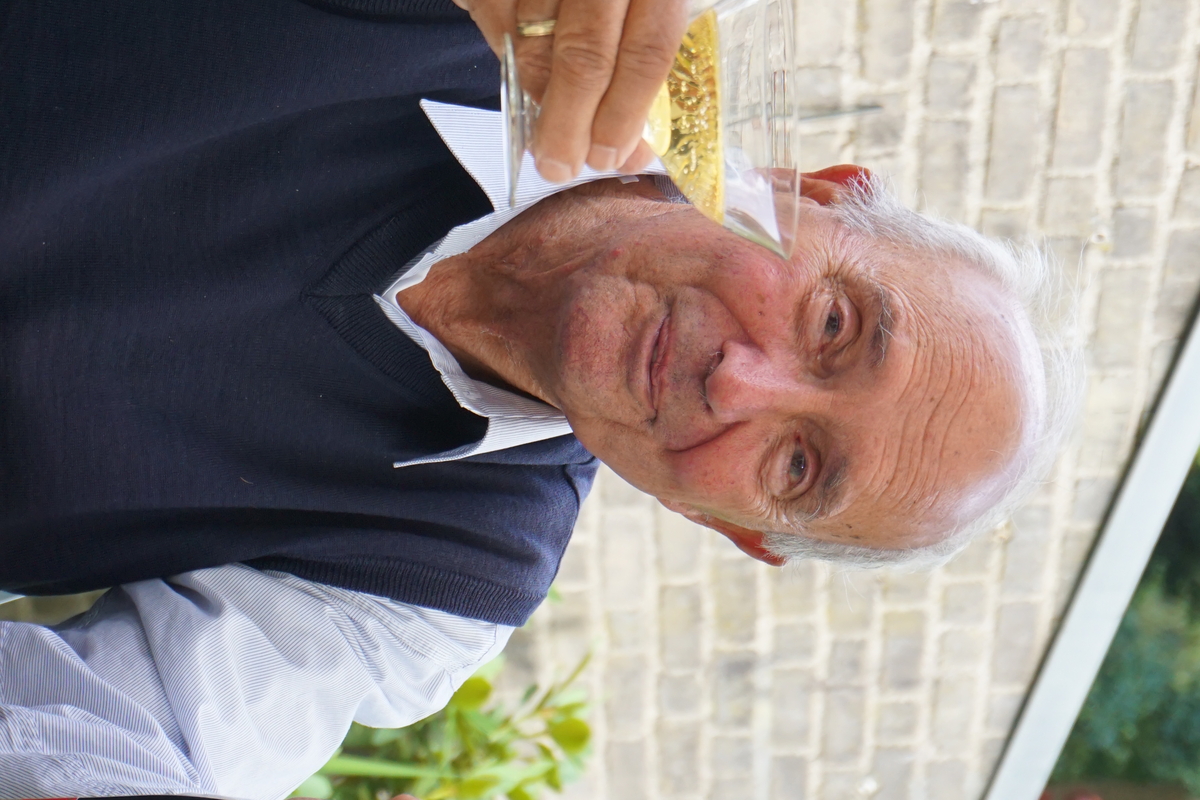
On 21 October 2021 Jan Carel Kutsch Lojenga, an outstanding former hospital pharmacist, died. In the Netherlands, he belonged to the first generation of hospital pharmacists. Jan Carel started his career in the Arnhem Municipal Hospital, where he was the only hospital pharmacist and, consequently had to practise the profession in all its aspects. He saw the importance of contact with colleagues at home and abroad.
When consulting people on Jan Carel what becomes apparent is that he was intelligent, devoted, charming, striking, well-informed, future-oriented, motivated, widely interested and he loved hospital pharmacy. He loved the debate, liked the challenge often with twinkling eyes. Jan Carel and his contemporaries laid the foundation for a hospital pharmacy that was clinical- as well as patient-oriented. They succeeded in firmly establishing hospital pharmacy within the hospital thereby enhancing the quality of drug provision.
In the 1980s Jan Carel became chairman of the Netherlands Association of Hospital Pharmacists (NVZA). His main aim was that hospital pharmacy had to become a genuine clinical specialisation. In 1999 he was appointed honorary member of NVZA. Jan Carel was always widely interested in hospital pharmacy across borders and was actively engaged in EAHP and FIP ( Honorary Member Hospital Pharmacy division).
When in 1972 the EAHP Articles of Association had been defined, initiated by France (Messrs Marcel Lebas, Alain Sauvageon), the Netherlands (Messrs Wim Moeys, Piet Hoevenaars) and Belgium (Mr Francois Martin) Jan Carel quickly became involved in EAHP and continued to be so until long after he retired. His eloquence in various languages stood out. Thus he was able to unite the representatives of the various European countries.
The first Association’s objective was that the professional hospital pharmacist is recognised as a specialist in the hospital by national and European authorities. This was a slow process and it was not until 1987 that collective minimum specialisation requirements were determined in EAHP. During that time an EAHP journal was set up which was very much stimulated by Jan Carel. The first issue was released in March 1984. Jan Carel was also the initiator of an EAHP Annual Conference and the first one took place in Amsterdam in 1996, which was attended by approx. 600 participants from abroad and only a handful of Dutch participants. However, it has developed into a big annual event.
Jan Carel embraced an African motto:
Every morning in Africa a gazelle wakes up,
It knows it must run faster than the fastest lion or it will be killed.
Every morning in Africa a lion wakes up
It knows it must outrun the slowest gazelle or it will starve to death.
It does not matter whether you are a lion or a gazelle
When the sun comes up, you ‘d better start running.
In his career, Jan Carel Kutsch Lojenga has always stuck to this thought. Of late he did not do a lot of running and his running has now stopped completely. I will always honour Jan Carel and what he signified for hospital pharmacy at large.
Deventer, The Netherlands
October 2021
Ben Ploeger, former hospital pharmacist
Commission publishes implementation roadmap for Cancer Plan
 On the 17th of November, the European Commission released an implementation roadmap and progress indicators for Europe’s Beating Cancer Plan to monitor developments on the ten flagship initiatives as well as its other actions.
On the 17th of November, the European Commission released an implementation roadmap and progress indicators for Europe’s Beating Cancer Plan to monitor developments on the ten flagship initiatives as well as its other actions.
Europe’s Beating Cancer Plan is structured around four key action areas with ten flagship initiatives and multiple supporting actions spanning from employment, education, social policy and equality, through marketing, agriculture, energy, the environment and climate, to transport, cohesion policy and taxation. In June this year, the European Commission launched the Knowledge Centre on Cancer followed by the launch of the HealthyLifestyle4All initiative in September. Work is also progressing in several areas including the revision of the Council Recommendation on cancer screening and a new Cancer Inequalities Register.
Under the EU4Health programme’s 2021 Work Programme, 12 action grants and 4 joint actions have already been launched covering many aspects of cancer prevention and care. A Stakeholder Contact Group, which supports the implementation of the Cancer Plan, will hold its second meeting in November to discuss the Horizon Europe Mission on Cancer and continue its work in the six thematic groups dedicated to prevention; early detection, diagnosis and treatment; quality of life; research, innovation and digitalisation; reducing inequalities and childhood cancer. Through this multi-stakeholder approach, the EU aims to improve the lives of more than 3 million people.
- Learn more about the implementation roadmap HERE
Artificial Intelligence in Healthcare report
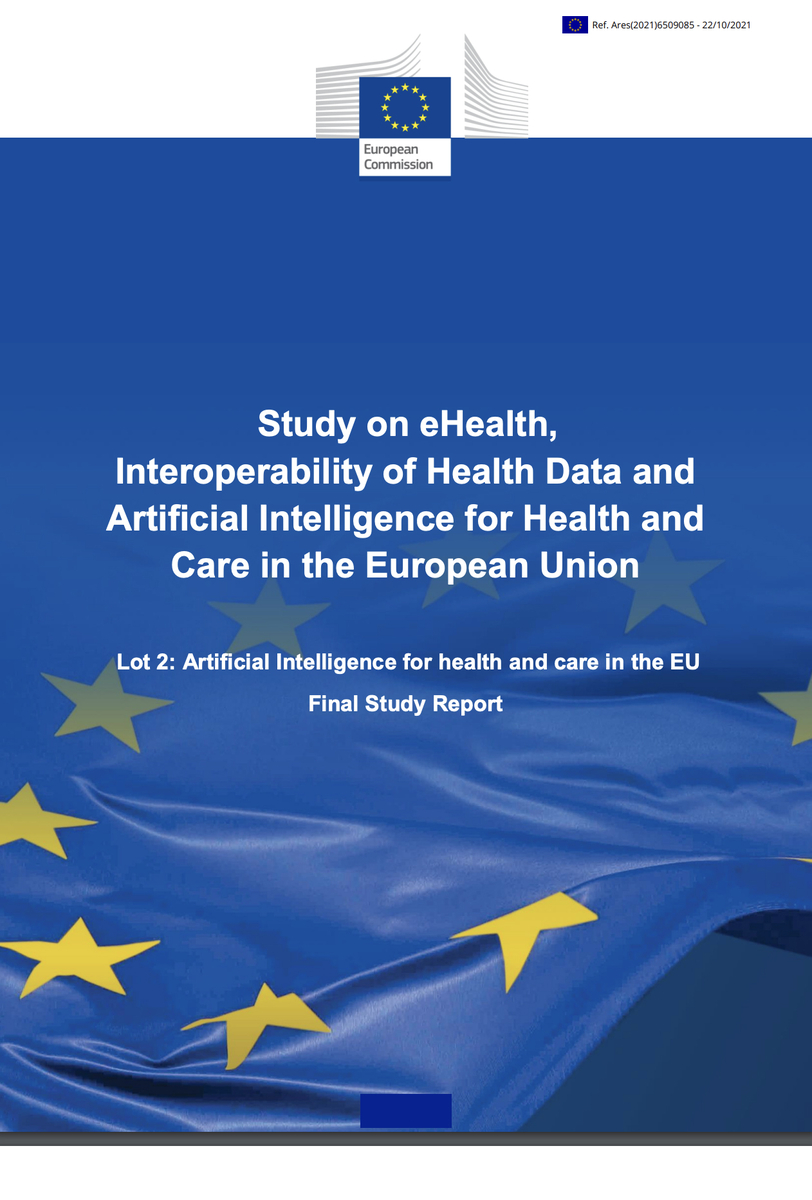
Earlier this month, the European Commission published its Artificial Intelligence in Healthcare report and accompanying country factsheets that present an overview of the current situation in each EU Member State with regards to the development, adoption and use of Artificial Intelligence (AI) technologies and applications in the healthcare sector.
The main aim of this study was to support the European Commission in identifying and addressing any issues that might be hindering the wider adoption of AI technologies in the healthcare sector. In addition, the AI report provides an overview of national strategies, the uses and plans for AI in healthcare, and stakeholder views. Six focus categories were identified. These include:
1. a policy and legal framework supporting the further development and adoption of AI aimed at the healthcare sector in particular;
2. initiatives supporting further investment in the area;
3. actions and initiatives that will enable the access, use and exchange of healthcare data with a vie w to using AI;
4. initiatives to upskill healthcare professionals and to educate AI developers on current clinical practices and needs;
5. actions addressing culture issues and building trust in the use of AI in the healthcare sector;
6. policies supporting the translation of research into clinical practice.
Support will be provided for the development and adoption of AI technologies in the healthcare sector across the EU in relation to these categories. The country factsheets share a more in-depth overview of the current situation in each EU Member State with regards to the development, adoption and use of AI technologies and applications in the healthcare sector.
- Read the report and the country factsheets HERE
Questionnaire: Ward pharmacists in oncology

As part of her PhD project in clinical pharmacy, a member of the German Society of Hospital Pharmacists has put together a survey in order to demonstrate the benefits of a ward pharmacist in oncology and thus help to increase the patient’s therapeutic safety. The project puts a specific focus on interprofessional collaboration of ward pharmacists, doctors and nursing in oncology.
To assess the impact of possible improvements and to get the most comprehensive picture possible, it is necessary to determine the current situation throughout Europe. For representative data collection, only one answer from each hospital pharmacy is allowed. Your information will be handled strictly confidential and the results will only be published anonymously. Responses can be shared until 15 December 2021. Participation only takes a few minutes and aims also at supporting pharmacists in clinics without a cytostatics department.
- Access the survey via the following HERE
EJHP: Potential impact of national recommendations to use short course antibiotic therapy on antibiotic use in the emergency department of a UK hospital: retrospective observational study

An original article published in the online edition of the European Journal of Hospital Pharmacy (EJHP) shared the findings of a retrospective observational study in an emergency department (ED) in the UK with 95 000 attendances a year. Patients managed in the ED between 1 December and 31 December 2019 with the following infections were identified: acute otitis media, human and animal bites, pyelonephritis, lower urinary tract infections, cellulitis, cough, infective exacerbation of chronic obstructive pulmonary disease, pneumonia, sore throat, sinusitis, and diverticulitis. The findings of the study showed that the adoption of the NICE antibiotic prescribing guidelines for common infections has the potential to reduce total antibiotic use in the ED by 7.5% and contribute to the hospital-wide antibiotic stewardship programme.
Read the article HERE
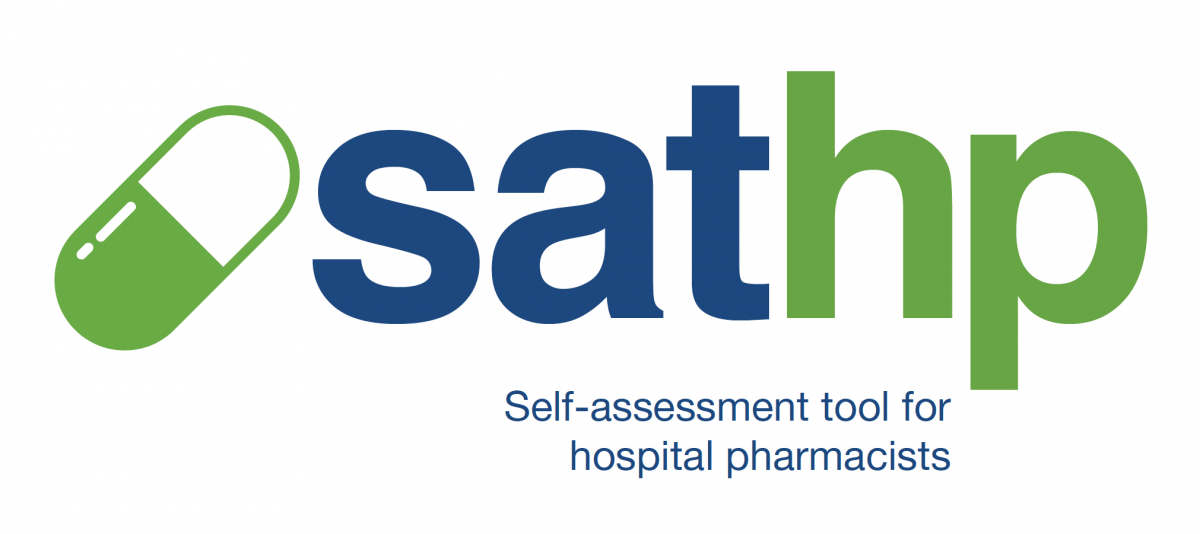 |
[EAHP Statement Corner]
|
Have you used EAHP’s SAT?
In March 2018, EAHP released a self-assessment tool (SAT) to support the implementation of the European Statements of Hospital Pharmacy. EAHP’s SAT helps pharmacies across Europe to understand the level of Statement implementation. To ensure that as many hospital pharmacists as possible can use the SAT, different language versions (Czech, English, French, German, Greek, Hungarian, Italian, Polish, Portuguese, Romanian, Serbo-Croatian, Spanish and Turkish) have been made available. Talk to your chief pharmacist and encourage him/her to work with the SAT. In case you are the head of the pharmacy get your team together and complete your assessment today with the help of the SAT.
- Learn more about SAT HERE
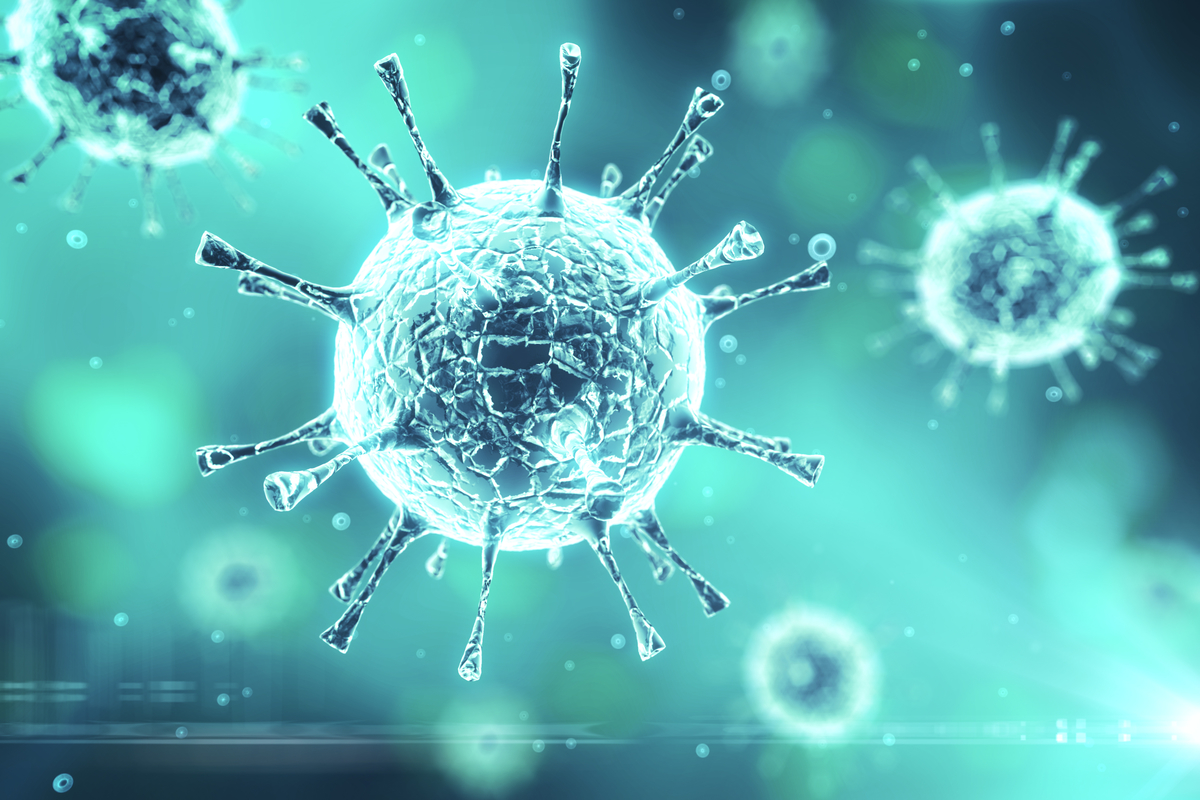 |
[COVID-19 Updates]
|
EAHP’s COVID-19 Resource Centre
To assist its member associations and individual hospital pharmacists in this critical time with the provision of the best possible care for patients, EAHP has decided to gather and make available information on COVID-19 relevant for the hospital pharmacy profession.
- Access the Resource Centre HERE
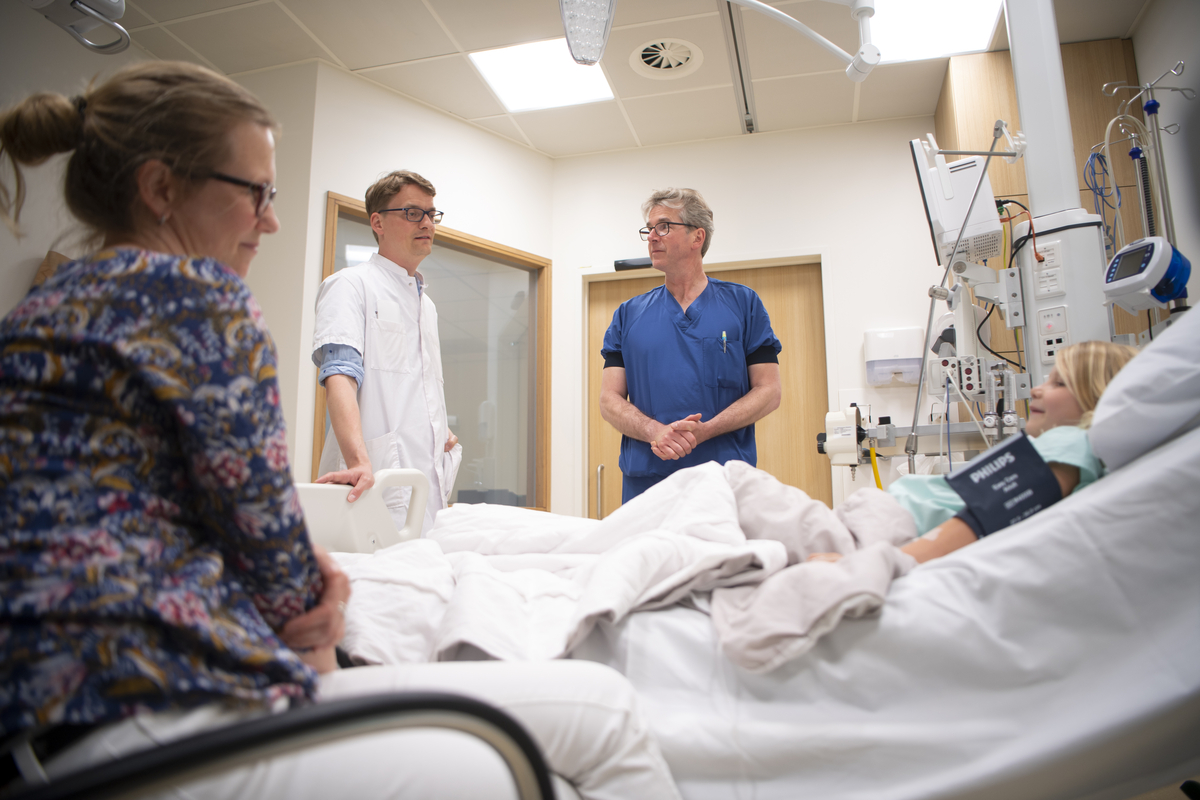 |
[Spotlight]
|
EAHP Position Paper on Hospital Pharmacy Specialisation
Hospital pharmacists are the key stakeholders responsible for medication management and safety in the hospital environment, covering both in- and out-patient services and supporting the seamless transition of care for patients moving within the healthcare system. To provide the best treatment for all patients, hospital pharmacists must be able to operate in a complex hospital setting and work collaboratively within multi-disciplinary healthcare teams.
To prepare the hospital pharmacy profession for the future, the European Association of Hospital Pharmacists (EAHP) adopted the European Statements of Hospital Pharmacy in 2014. They express commonly agreed objectives that every European health system should aim for in the delivery of hospital pharmacy services. To further enhance the quality, safety and equity of access to patient care in every European country, EAHP additionally created the Common Training Framework (CTF) project for hospital pharmacy education in Europe. This project not only fosters the further development of hospital pharmacy practice but also seeks to guarantee the access of European citizens to the highest available standard of care and the freedom of movement of the hospital pharmacy profession which is currently not accessible to all.
In June 2021, EAHP’s General Assembly adopted a Position Paper on Hospital Pharmacy Specialisation. The position centres around advancing the profession by harmonising the recognition of hospital pharmacy education, enhancing the role of the hospital pharmacist and preparing the profession for future challenges.
To make a difference in medication by advancing the hospital pharmacy profession, EAHP
- calls on the European Commission and the Member States to assist the Association in setting up a CTF through the adoption of a delegated act;
- touches on the need for Member States to recognise the changing role of the hospital pharmacists and further foster their implementation; and,
- underlines the importance of further promoting the uptake of such cross-sector tools inter-sector communication, coordination and multi-disciplinary collaboration in all healthcare facilities should be strengthened.
To adequately address future challenges linked to the ageing society, changing healthcare needs and other unknown factors, like future pandemics, EAHP urges that Member States invest in better workforce planning for the hospital pharmacy profession, including the availability of hospital pharmacy services for all patients of each hospital.
- Read EAHP’s Position Paper on Hospital Pharmacy Specialisation HERE
European Commission – Public consultation on the revision of the general pharmaceutical legislation
This public consultation aims to collect views of stakeholders and the general public in order to support the evaluation of the existing general pharmaceutical legislation and the impact assessment of its revision. It builds further on the public consultation conducted for the preparation of the pharmaceutical strategy for Europe.
Deadline – 21st December 2021
- Access the consultation HERE
EDQM – Draft monograph on Oxygen (98 per cent) published for comment in Pharmeuropa
A new draft monograph, Oxygen (98 per cent) (3098), has been published for comment by the European Directorate for the Quality of Medicines & HealthCare (EDQM). This draft monograph is the outcome of a thorough examination of the substantial response to the request for feedback issued in April 2020 and which prompted lively and constructive discussions with regulatory experts in the field, as well as a series of dedicated European Pharmacopoeia (Ph. Eur.) expert meetings.
Deadline – 31st December 2021
- Access the consultation HERE

























 On the 17th of November, the European Commission released an implementation roadmap and progress indicators for Europe’s Beating Cancer Plan to monitor developments on the ten flagship initiatives as well as its other actions.
On the 17th of November, the European Commission released an implementation roadmap and progress indicators for Europe’s Beating Cancer Plan to monitor developments on the ten flagship initiatives as well as its other actions.





